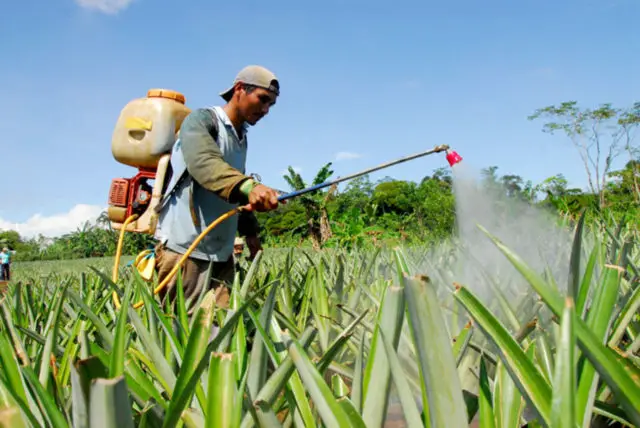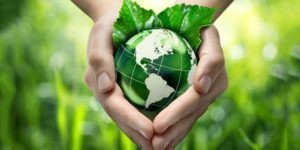The United Nations (UN) has pointed to agribusiness as responsible for aggravating the Climate Crisis, mainly due to the impacts resulting from the change in land use, that is, deforestation.
Meanwhile, in Costa Rica, the environmental crime product of the pineapple activity remains unpunished. An industry that has degraded more than 5,568 hectares of forest cover, increasing the National Greenhouse Gas (GHG) Contributions of Costa Rica by 1.2 Giga-tons of CO2. This is why the environmental movement considers it necessary to include the moratorium on pineapple expansion in the National Decarbonization Plan.
The Intergovernmental Panel on Climate Change (IPCC) has published the latest report entitled “Climate change and land: a special report on climate, desertification, land degradation, sustainable management, food security, and effect gas flows greenhouse in terrestrial ecosystems”.
Costa Rica will host the pre-conference on climate change (Pre-COP) from October 8th to 10th, 2019, but national environmental groups point out that there is a need for more discussion and participation of the sectors in the definition of Costa Rican policies on climate change.
According to Alejandra Porras, a member of CoecoCeiba Friends of the Earth Costa Rica: “in the light of this new IPCC report, it is important to include food sovereignty and the moratorium on pineapple expansion in the national discussion, before the Climate Pre-COP and in the National Decarbonization Plan.
For Erlinda Quesada of the National Front of Sectors Affected by the Pineapple Production (FRENASAPP): “the pineapple expansion must be part of the climate discussion because these companies pollute and generate serious environmental impacts”.
Pineapple and the climate crisis
A calculation made by the FECON reveals an important contribution to the emissions responsible for global warming. The Emissions Factor for Deforestation for the forests of Costa Rica applied with the amount of forest cover that the pineapple companies have cut down, between 2000 and 2015, reveals a part of the contribution of the pineapple companies in the field of Greenhouse Gases exclusive of the deforestation of this activity.
According to the data of the National Center of High Technology of the CONARE and its project of Monitoring the Change of Use in Productive Landscapes (MOCUPP), the pineapple companies have deforested the year the equivalent of 5,568 hectares of forest cover.
For its part, the IPCC points out that by converting 1 hectare of forest in Costa Rica into monoculture, it generates about 220 tons of CO2. This would give an accumulated of 1,224,520 tons of CO2 released into the environment only by the deforestation of this industry. This is a conservative calculation because it will be necessary to add the use of agrochemicals (from petroleum), the burning of stubble, transport, packaging, and machinery.

In addition, according to the National Territorial Information System (SNIT), pineapple agro-export companies are cultivating even within Protected Wild Areas, where they plant 1,500 hectares of this monoculture outside of regulations.
Also thanks to the SNIT it can be verified that the pineapple expansion continues. Between 2017 and 2018 alone, the crops of this fruit expanded by 9,000 hectares, 15% of the total area planted in the country reaching a record 67,000 hectares of pineapple cultivation.
It demonstrates that pineapple expansion is a reality and is putting at risk not only local populations impacted by agro-toxins but also accelerating the global climate crisis.
For Henry Picado, president of FECON: “The goal of decarbonization proposed by the government of Carlos Alvarado is impossible to meet, as long as the destruction and environmental degradation caused by the pineapple sector continues to be covered up”.
Climate change and the Earth
According to the official IPCC statement issued last Thursday: “Land plays an important role in the climate system. Land use for agricultural, forestry and other purposes accounts for 23% of man-made greenhouse gas emissions. At the same time, the natural processes of the Earth absorb an amount of CO2 equivalent to practically 1/3 of the CO2 emissions caused by the burning of fossil fuels and industry”, said Jim Skea, co-chair of Working Group III of the IPCC.
This situation is exacerbated if we take into account that other climate experts point to an important sub-registration or even concealment of data by the agribusiness sector about its real emissions. Research organizations have found that between 44% and 57% of GHG emissions come from the industrial food system.
GRAIN notes that these companies are responsible for the GHGs produced by Deforestation, use and agrochemicals, transportation, processing and packaging, refrigeration and waste (before bequeathing the market). Together all these aspects make the food production system responsible for half of the GHGs on the planet. In addition to this, the UN has also pointed out that large-scale agriculture is responsible for 70% of global water consumption.


